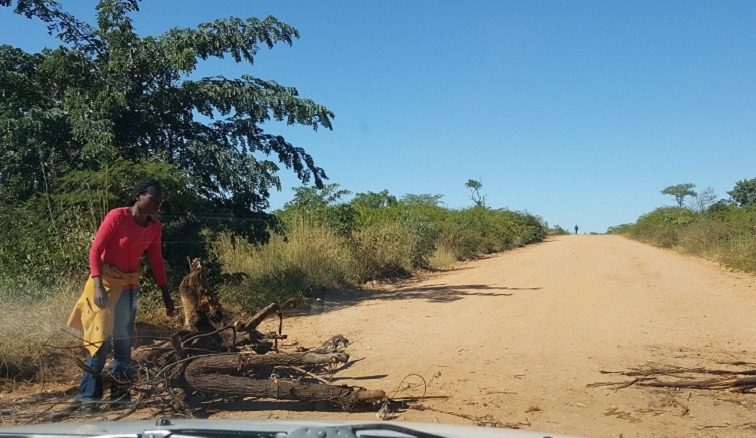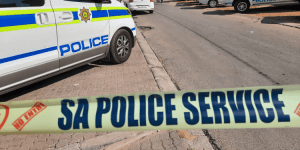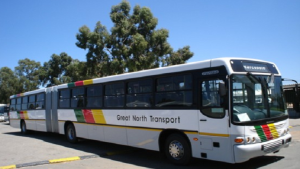During his address to the National Summit for Organised Local Government in November 1996, President Nelson Mandela asked these questions to those in government:
“Many of you have now been in office for just over a year. It is a good time to assess your own performance. Every councillor needs to ask ‘have I made a difference to the quality of life of the people? How successful have we been over the past year in delivering essential services to residents, such as sanitation, roads, refuse removal, health services, electricity? Have we been able to deliver water and to mend the leaking pipes and the broken meters? Have we been able to bring services to the informal settlements and the rural areas?’
28 years later since that statement by the great South African leader, many South Africans from rural areas, the former Bantustans in the areas of Limpopo, Eastern Cape, and North West just to mention a few, would negatively answer those questions as they lament the state of affairs in their rural towns and villages.
The promises of 1994 has no doubt turned sour and allowed damage without maintenance to some of their facilities from the former TBVC (Transkei, Bophuthatswana, Venda, Ciskei) (and homeland) governments
In many of these rural areas like Tshitale in the Makhado Local Municipality in Limpopo, water infrastructure was installed costing taxpayers millions of rands. Taps were made available to every corner of the streets, but water remains, literally a pipe dream.
Every election period, community members are summoned to meetings to talk about the same problems of water and roads. If you are lucky, you will get water once a week for a few hours.
In 2015, after protests by community members who were demanding better roads, the Limpopo Department of Transport and Roads, through the Road Agency Limpopo (RAL) advertised tenders for contractors to come in for the gravel-to-tar upgrading road between Mashamba to Tshitale and Morebeng (Soekmekaar).
This action inspired the hopes of this forgotten community, including teachers, police officers, and businesspeople who have to use this road daily.
But it was not to be, nine years later, RAL only covered 5km of the 40km promised.
The struggle for people living in rural areas for access to a better quality of life through service delivery is still far from over.
Before the institution of the Vhembe District Municipality was formed, the Tshitale area had excavators and gravel graders stationed right within the community, and they took care of the village streets and helped prepare the sports field as the government did not make any means to provide recreational facilities.
The graders belonged to the Department of Public Works where men and women were trained to do general work for the benefit of the communities. But in the early 2000s, the graders were taken away from this community and they were never seen. When community members call the municipal offices to help, they are asked if there is a death at the local chief’s home.
The local taxi association has lamented the poor roads as a curse of democracy. This is because many can’t finish paying for their financed vehicles before experiencing mechanical and panel beating problems.
Bus companies like Mabidi, Phadziri, and Do Light operating in these communities have a tough job as they struggle to transport workers and shoppers between towns during the muddy summer rains.
In October 2023, the Public Service Commission (PSC) led by its Chairperson Professor Somadoda Fikeni visited the area and invited the provincial government to account for the lack of basic services in this community. Promises were made from speaker after speaker from the provincial government and municipality. But as early as December 2023, the municipality had not even bothered to grade the gravel roads. It was as if nothing happened and there was nothing anyone could do about it. It was just another talk show by officials. A five-minute trip takes 30 minutes because of bad gravel roads
The departure of the public works office also meant that the stormwater infrastructure like small bridges and drains that were installed to support the gravel roads could no longer receive maintenance and repairs.
Rainwater is now forming dams in the middle of the road, making it difficult for vehicles and pedestrians to navigate the streets.
The local Tshitale Police Station has in recent years been blessed with the tougher Toyota Land Cruisers so that officers can navigate the bad roads with ease. But ordinary citizens do not have the luxury to choose the toughest vehicle from the dealership floor; and they most certainly do not have taxpayer money to spend on transport, on tyres and other related damages.
Municipalities have proven to be a source of pain and sorrow for many rural communities in the country. The headquarters of poor services, corruption, and maladministration. This is also backed by the Auditor General’s Municipal Finance Management Act report of 2021/22 in which it was revealed that 29% of municipalities reported that they are not certain of future operations. They collapse before they render the much-needed services, but still demand more money from the national treasury.
Mandela’s questions can be answered by visiting rural communities, and the forgotten mothers and fathers who will continue sending their children to the urban areas to attain better lives.
Maswele Ralebona is with the SABC News and Current Affairs division








